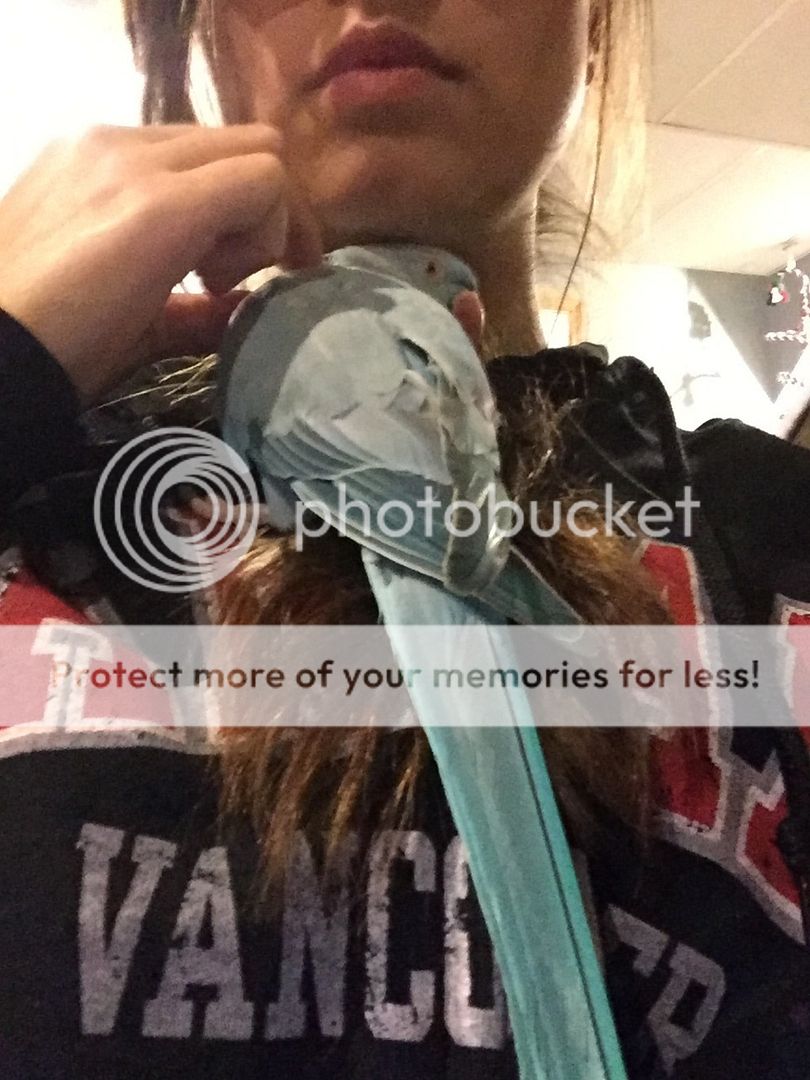Have you tried looking on Amazon? They have excellent deals on birdcages and more often than not you can get 2 day Prime shipping on them. This is the cage I have for Shiko, but in grey:
[ame="http://www.amazon.com/gp/aw/d/B000OP9M5U/ref=mp_s_a_1_36?qid=1444098640&sr=8-36&pi=AC_SX110_SY165_QL70&keywords=Prevue+Hendryx&dpPl=1&dpID=41ioTqJs1FL&ref=plSrch"]Amazon.com : Prevue Pet Products Wrought Iron Select Bird Cage 3154BLK, Black Hammertone, 36-Inch by 24-Inch by 66-Inch : Parrot Cages : Pet Supplies[/ame]
I don't use the playtop because the grate made the cage too dark as we don't have enough natural light in the basement for the birds, instead we have boings and orbits hanging from the ceiling that they love.
Annnddd as I struggle to type this with one hand, this is what Shiko is doing:

In regards to ringnecks going "wild", I honestly feel that it's a bit of an old wives tale with no backing. Any bird that you don't handle, don't let out of the cage, don't positively reinforce, or let be an aviary bird without interacting with them on a daily basis will revert to their "wild" nature. And some birds do that with that interaction, but I don't think ringnecks are predisposed to do so. Some even find their bluffing to be controversial. I personally do think ringnecks bluff, and that it's very notable in their species opposed to others. Shiko certainly seems "wild" as opposed to his general behaviour at the moment, but that's because he's going through a major moult right now and is very quite skittish and touchy (aannnddd he just got his first black feather today - YAY!).
What I recommend in regard to your bird being jumbled about you having more work time is to simply employ a schedule as soon as possible that will reflect your future lifestyle. Don't have your bird out 8 hours every day and then suddenly only have them out for 3-4 every day - it can really shake them up and lead to more problematic behaviours like screaming and plucking. If you know you're not going to be home until 5, then have your bird out in the morning before work, do a morning "ritual" if you will, and then have them out again once it hits around 5. Scheduling is pretty important for any animal, but I find parrots really need to have a general sense for when they should be awake, fed, interacted with, etc. Not to say having a dynamic schedule isn't good too, as it helps some parrots adjust to change much better, but drastic changes are never any fun for anyone.


